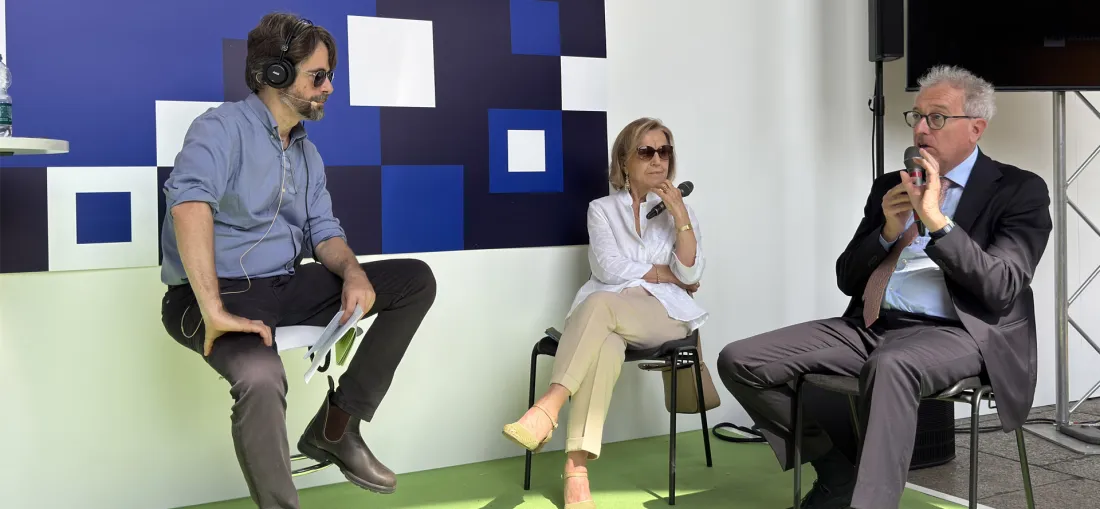Pierre Gramegna in interview with Radio Rai 3

Transcript of interview with Pierre Gramegna, ESM Managing Director
Radio Rai 3, 31 May 2025
Interviewer: Pietro del Soldà
Original language: Italian
Rai 3: Mr Gramegna, welcome to Torino to the Rai 3 radio programme “Tutta la città ne parla”. We have been talking about how nationalism, a political choice that we sometimes call sovereignty, is a mistake. It is a political position that wins elections but proves to be a mistake, a mistake even for those who express it with conviction, because it is destined to impoverish and worsen quality of life.
Pierre Gramegna: Thank you for inviting me. I would like to say that Europe [the European Union] not only gives our continent importance, but it also gives us so much. Let’s look at what happened in the last crisis. The financial crisis of 2009-2010, we had a European response. Covid. We had Next Generation EU, the RRPs (Recovery and Resilience Plans). Italy received [about] €200 billion out of €800 billion in total. We must repeat this, it was an act of solidarity never seen before. If you had asked me before, if this was possible, I would have said: no, that's going too far.
This figure explains the positive performance of Italian’s budget in recent years, another topic of the day that cannot be understood without this data.
Of course it helped. So, what we can expect is that the role played by Europe will be recognised, instead of always insisting that we are moving too slowly. It is true that with 27 members, negotiations are necessary, but we know what we need to do. The reports by Enrico Letta and Mario Draghi tell us that this is the right path to take to achieve more investment and more growth.
Because to finance pensions and our welfare, we need growth. Our growth is too weak, and if we don't make this effort together, if everyone does it on their own, we will lose much of the single market that we already have, but that we really need to modernise. One last example. We spoke briefly about defence. It is clear that we need to spend more on defence. Almost all European countries now say we will do it. We are doing so not only because NATO is asking us to, President Trump is asking us to, but because we must do so to protect ourselves.
That’s point number one. Point number two, which is still not clear [to all], is that we must now do this in earnest. It is not enough for Germany to announce €500 billion for defence. I hope that part of this is linked and coordinated with others who will also put money in. If we don't do it together, our efforts and the boost to defence and the economy will be small compared to what we could achieve if we did it together.
Do you agree with the Governor of the Bank of Italy, Panetta, who on this point distances himself somewhat from the Commission, from Ursula von der Leyen, explicitly stating the need for a common bond issuance, common debt to finance this project and not each with their own money?
This is the typical European way. Let's try to find enough money. But the first thing we should ask, and we must do it together, is how we are going to do it together? We know that half the countries do not agree with Eurobonds, so bringing that discussion into the mix is not the best way forward. Let's [agree on what we want to do] together. Do we want to develop European drones that are more effective than those of the Americans and the Chinese? Do we have a concrete project? [Then] we will find funding; in fact, a large part of the funding is coming from the private sector.
I am very inspired by the European Investment Bank, which is a bank that is an incredible success story. In 1958, the countries put in some initial capital, which this bank invests and uses to finance lots of projects. I want to talk about how to finance this common defence. There are some interesting ways to do it. I'm thinking of the ESA, the European Space Agency, which is an interesting model. And yes, there needs to be public money too. Let's find a way to combine the two. In other words, insisting on Eurobonds, which have been talked about for 10 or 20 years, may not be wise [at the current moment].
The goal seems increasingly clear to me: if we want to defend ourselves, as with many other things, including the economy, do want to do it on our own, when there is someone or a country on the other side of the Atlantic that no longer believes in or destabilises the world order we have known, that no longer wants multilateralism? This seems to me to be the most motivating factor for moving forward together and putting everything on the table, avoiding disagreements, because if everyone says, 'I'm not doing this', and someone else says, 'I'm not doing that', obviously everything gets blocked from the start. We must walk together.
I want to ask you another question, because you are in Italy, and you are the director of the ESM. That acronym has been at the centre of furious political controversy in the past, ESM yes, ESM no. It was often mentioned and thrown around in the debate, this acronym, without knowing its meaning. It is an Italian case. How do you judge this, as Managing Director of one of the many lifelines for the financial stability of the European Union, amid global tensions? How does this Italian story fit into this?
First of all, to be clear, what Italy has not ratified is an amendment. Because there are many people who think that the ESM does not exist or cannot work because Italy has not ratified it. Italy has ratified the ESM Treaty, it is a member of the ESM, the third largest country with 17% of the capital.
The direct consequence [of non-ratification] is that this amendment does not come into force, which means that if there are problems in European banks - there is a bank resolution fund with €80 billion that has been fed by a contribution from the banks - and there would be €68 billion at the ESM ready to be added as additional aid for the banks. Even this, if it were to come into play, would have to be repaid by the banks. In other words, this mechanism, which has been in place for many years, means that it is not the Italian or European taxpayer who has to save the banks, but the banks themselves. So, this aid from the ESM is not possible until Italy has ratified it [the amendment].
The second consequence is the fact that Italy is blocking other countries, in this case the other euro area countries - because the ESM only serves countries that have the common currency - meaning that on other issues where Italy is pushing, for example, we have talked about Eurobonds, but we could talk about the Savings and Investments Union, Italy is pushing to lower the bar.
On these other issues, a country like Germany says: ratify this treaty and there is goodwill on all sides. And as I said before, with what is happening across the Atlantic, but not only across the Atlantic, we are living in a time when multilateralism is suffering, point number one.
Second, there are more than 50 global conflicts, not only Ukraine and Syria that we always talk about, but there are also more and more [conflicts]. And third, we must say that not only in all European countries, but also in recent elections, extremism, i.e. nationalist parties, are becoming increasingly strong. This must challenge all of us and convince us that the right and most effective path is the European path, to do things together. What do you want the Netherlands, Belgium or Luxembourg to do, even together in the Benelux? What do you want Austria to do on its own? And I am not talking about the larger countries, even they cannot do it alone. In other words, we are at a historic moment where we face the risk of nationalism across Europe, which must push us to act together.
In 1993, President Mitterrand said something very simple at the European Parliament in Strasbourg. If you have not thought about it, consider this: “Nationalism means war!”
Author

Contacts


